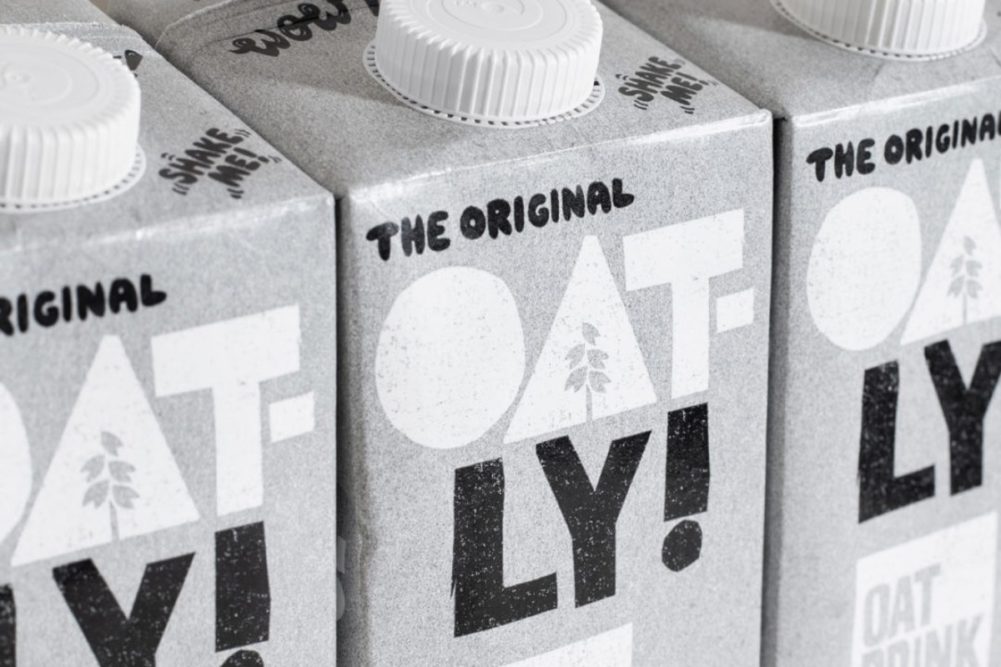MALMO, SWEDEN — Oatly Group AB paid for its shift to an asset-light manufacturing model during the fourth quarter of fiscal 2023. The company took a non-cash asset impairment charge of $172.6 million and other costs of $29 million related to the discontinued construction of certain manufacturing plants.
The company also said it may incur additional costs in fiscal 2024.
In January 2023, Oatly divested some manufacturing assets in North America to Ya YA Foods, Etobicoke, Ont., a contract manufacturer of aseptic food and beverage products.
Then, in November 2023, the company ceased construction of two manufacturing plants in its Americas and EMEA business segments. The impairment charge and other costs are related to discontinuing the construction of the plants.
“We have been taking a holistic look at the network with the overarching goals of ensuring we have the right amount of capacity when we need it while also being very efficient with our capital,” said Jean-Christophe Flatin, chief executive officer, during a Nov. 9 conference call with securities analysts to discuss third quarter results. “We believe that we have enough capacity available to support our growth over the next few years.
“We believe this will help achieve our goals of appropriated time expansion and capital efficiency. It should also enable us to better focus by simplifying and streamlining the supply chain and reducing the complexity. This increased simplicity and focus also increases our confidence in our longer-term margin targets as we expect to be able to allocate more of our team's time and resources into improving the business.”
The transition to an asset-light business model appears to be working for the company, which turned a profit during the quarter ended Sept. 30. Net income for the period was $44 million, equal to 7¢ per share on the common stock, and an improvement over the third quarter of fiscal 2022 when the company recorded a loss of $108 million.
Quarterly sales ticked up to $188 million from $183 million the year before.
In the Europe, Middle East and Africa (EMEA) region, Oatly’s largest business unit, sales rose 23% to $102 million during the quarter. Approximately 83.5% of quarterly sales came from retail and unit volume sales rose 6.3% to 72 million liters. The business segment recorded a profit of $11.8 billion, an improvement over the previous year when the segment recorded a loss of $11.7 million.
“We expect this momentum going forward, helped by many of our new customer wins, including Coffee Fellows, which we recently announced,” said Daniel Ordonez, chief operating officer. “We are pleased with the performance in the established markets, and we’re actively working to maintain the momentum.”
In Oatly’s Americas region, it was a slightly different story as sales fell 4% to $58.5 million from $60.7 million the year before. Volume sold fell to 34 million liters from 36 million liters, and the business unit recorded a loss of $7.5 million, an improvement over the third quarter of fiscal 2022, when the company recorded a loss of $17.9 million.
The 5.6% volume decrease was primarily due to lower volumes in the foodservice channel, partially offset by increases in the retail channel, according to the company. Approximately 53.3% of Americas revenue was from the retail channel in the third quarter of 2023 compared to 53.2% in the prior year quarter.
“I am pleased to report that we are back to gaining retail market share in the Americas,” Ordonez said. “While the category growth rates have not been as strong as we would like, we firmly believe that consumers will continue to shift to Oatly over time.”
In Asia, sales fell 31% to $27.3 million from $39.8 million the year before. The segment recorded a loss of $21.6 million compared to $30.3 million in 2022.
The company attributed the sales decline to a refocusing of Asia business into the foodservice channel.
For the first nine months of fiscal 2023, Oatly remains solidly in the red, recording a loss of $118.3 million, which is an improvement over the same period in fiscal 2022 when the company recorded a loss of $267.4 million.
Sales for the period rose to $579.2 million, up from $527.2 million the year before.

